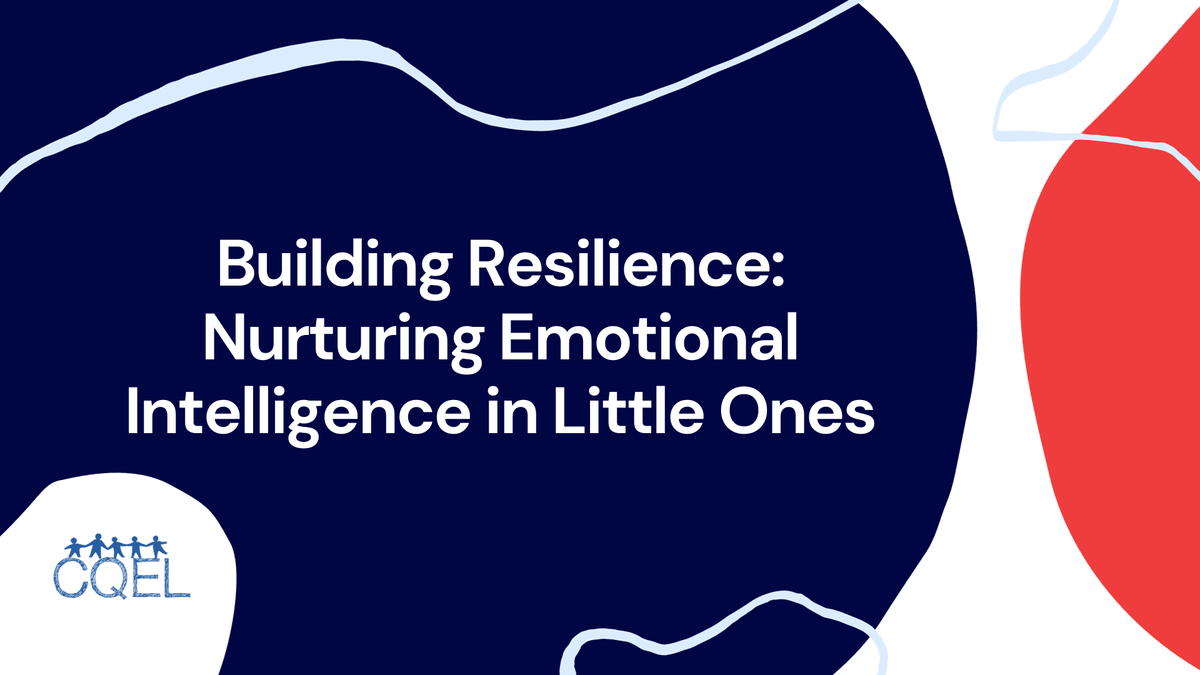Building Resilience: Nurturing Emotional Intelligence in Little Ones
Within each tiny adventurer lies a hidden treasure: the seeds of emotional intelligence and resilience. As early childhood educators, we are vital to tending these seeds, ensuring they blossom into vibrant tools for navigating life's inevitable journey.

Imagine tiny explorers traversing the uncharted terrain of childhood. Bright eyes wide with wonder, they encounter sunshine and rainstorms, laughter and tears, triumphs and stumbles. Yet, within each tiny adventurer lies a hidden treasure: the seeds of emotional intelligence and resilience. As early childhood educators, we hold the vital role of tending these seeds, ensuring they blossom into vibrant tools for navigating life's inevitable journey.
But what exactly is emotional intelligence (EQ)? Think of it as a complex toolbox nestled within each child's heart. Inside lie instruments for recognizing and understanding emotions, both their own and others'. Self-regulation helps manage those emotions, guiding their expression in healthy ways. Empathy allows them to walk in another's shoes, fostering understanding and connection. Social skills, the glue that binds communities, blossom as children learn to communicate effectively and navigate relationships.
These tools, nurtured early, form the bedrock of resilience – the ability to bounce back from adversity, find strength in hardship, and adapt to life's ever-changing currents. A resilient child can weather storms of frustration, disappointment, and even loss, emerging stronger and more capable. Studies show EQ and resilience directly impact children's academic success, mental health, and overall well-being, shaping the path to thriving adulthood.
So, how does our magic touch help these seeds flourish? We start by building nurturing environments, safe havens where emotions are acknowledged and validated. Children need to know they can express their anger, sadness, and joy without fear of judgment. Play-based learning becomes our fertile ground, where storytelling and imaginative adventures provide opportunities to experiment with emotions and practice social skills. Picture books, with their relatable characters and vivid illustrations, become emotional mirrors, helping children grasp complex feelings and build empathy.
Conflict resolution skills don't magically appear; they're nurtured through guided practice. We empower children to use their "I" statements, navigate disagreements respectfully, and find win-win solutions. And let's not forget the power of collaboration! Partnering with families creates a united front, ensuring consistent support and messaging across home and childcare settings.
But remember, our own emotional well-being is the root system that sustains this garden of resilience. Self-care isn't a luxury; it's a necessity. By tending to our own emotional needs, we become better equipped to nurture the delicate seedlings entrusted to our care.
Building resilience and EQ isn't about creating emotionless robots; it's about equipping our little adventurers with the tools they need to embrace life's full spectrum. As we celebrate their triumphs and guide them through challenges, we cultivate not just happy childhoods, but resilient souls ready to blossom into the emotionally intelligent future leaders of tomorrow. Let's embark on this journey together, hand in tiny hand, building a world where our little explorers navigate life's storms with hearts full of strength and compassion.
Additional Resources:
- Center on the Developing Child at Harvard University: https://www.cfchildren.org/what-is-social-emotional-learning/
- Collaborative for Academic, Social, and Emotional Learning (CASEL): https://casel.org/
Remember, nurturing emotional intelligence and resilience is a collaborative journey. Let's share resources, exchange ideas, and celebrate each tiny triumph together.
